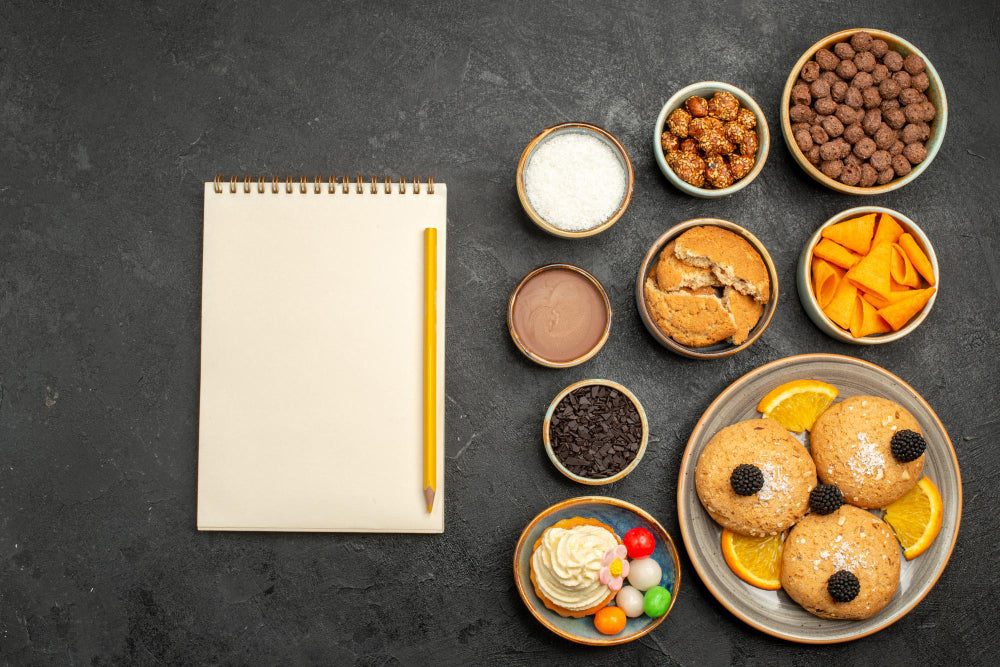
IBS Diet Traps: 12 Foods to Avoid While IBS
Irritable Bowel Syndrome (IBS) is a common digestive disorder affecting the large intestine. Symptoms include constipation, diarrhea, bloating, abdominal pain, and cramping. Although IBS doesn't cause permanent intestinal damage, it can significantly impact daily life.
Its exact cause is still unknown, but stress, specific foods, and gut sensitivity often trigger or worsen symptoms. Managing IBS typically involves dietary changes, stress management, and sometimes medication, with personalized care guided by healthcare professionals.
Foods to Avoid While IBS
1. Dairy Products (Milk, Cheese, Yogurt)
-
Why to Avoid: Many individuals with IBS have lactose intolerance, leading to difficulty digesting lactose, resulting in bloating, diarrhea, and stomach discomfort.
-
Tips:
-
Opt for lactose-free alternatives like almond milk, soy milk, or lactose-free yogurt.
-
Hard cheeses like cheddar may be more digestible than soft cheeses.
-
2. Gluten (Wheat, Barley, Rye)
-
Why to Avoid: Gluten sensitivity can trigger IBS symptoms such as bloating, abdominal pain, and gas.
-
Tips:
-
Choose gluten-free products like rice, quinoa, and gluten-free bread.
-
Differentiate between gluten sensitivity and celiac disease, as both require different dietary approaches.
-
3. High-FODMAP Foods (Onions, Garlic, Certain Fruits)
-
Why to Avoid: FODMAPs (Fermentable Oligo-, Di-, Mono-saccharides, and Polyols) are carbohydrates that can ferment in the gut, causing gas, bloating, and diarrhea.
-
Tips:
-
Limit foods like onions, garlic, apples, pears, and legumes.
-
Follow a low-FODMAP diet under professional supervision for symptom relief.
-
4. Fried Foods
-
Why to Avoid: High-fat content in fried foods can slow digestion, irritating the gut.
-
Tips:
-
Choose grilled, baked, or steamed foods.
-
Limit fast food and deep-fried snacks.
-
5. Processed Meats (Sausages, Hot Dogs, Deli Meats)
-
Why to Avoid: Processed meats often contain preservatives, artificial additives, and high fat, which can irritate the digestive system.
-
Tips:
-
Select lean meats like chicken, turkey, or fish.
-
Read labels to avoid hidden sugars and additives.
-
6. Caffeinated Beverages (Coffee, Energy Drinks, Sodas)
-
Why to Avoid: Caffeine stimulates the digestive system, leading to diarrhea, cramps, and discomfort.
-
Tips:
-
Reduce or eliminate coffee, energy drinks, and sodas.
-
Opt for herbal teas like peppermint or ginger, which can soothe the digestive tract.
-
7. Artificial Sweeteners (Sorbitol, Mannitol, Xylitol)
-
Why to Avoid: These sugar substitutes are poorly absorbed, causing gas, bloating, and diarrhea.
-
Tips:
-
Check labels for artificial sweeteners, commonly found in sugar-free products.
-
Use natural sweeteners like stevia or reduce sugar intake.
-
8. Beans and Legumes (Lentils, Chickpeas, Black Beans)
-
Why to Avoid: High fiber and complex carbohydrates in beans can lead to excessive gas and bloating.
-
Tips:
-
Soak and thoroughly cook beans to reduce gas-producing properties.
-
Start with small portions to assess tolerance.
-
9. Carbonated Drinks (Soda, Sparkling Water)
-
Why to Avoid: Carbonated drinks introduce gas into the digestive system, causing bloating and discomfort.
-
Tips:
-
Avoid soda and sparkling water.
-
Choose still water or non-carbonated beverages.
-
10. Spicy Foods (Chili Peppers, Hot Sauces, Spicy Curries)
-
Why to Avoid: Spicy foods can irritate the digestive tract, triggering diarrhea and cramps.
-
Tips:
-
Reduce spicy foods containing chili peppers.
-
Use mild herbs like basil, oregano, or thyme for flavor.
-
11. Cruciferous Vegetables (Broccoli, Cauliflower, Brussels Sprouts)
-
Why to Avoid: These vegetables contain fiber and sugars that can cause gas and bloating.
-
Tips:
-
Steam or cook vegetables to reduce their gas-producing effects.
-
Substitute with carrots, zucchini, or spinach.
-
12. Alcohol (Wine, Beer, Spirits)
-
Why to Avoid: Alcohol irritates the gut lining and increases gut motility, leading to diarrhea and bloating.
-
Tips:
-
Limit alcohol consumption and avoid beer due to its carbonation.
-
Opt for moderate amounts of wine or clear spirits mixed with non-carbonated beverages.
-
Additional Tips for Caring While IBS

-
Maintain a Food Diary: Track foods that trigger symptoms to identify personal intolerances.
-
Stay Hydrated: Drink plenty of water to support digestion.
-
Eat Smaller Meals: Consume smaller, more frequent meals to reduce digestive stress.
-
Reduce Stress: Practice relaxation techniques like yoga, meditation, or deep breathing to manage stress-related symptoms.
-
Seek Professional Guidance: Work with a healthcare professional or dietitian to create a personalized dietary plan, especially when following a low-FODMAP diet.
Conclusion
Managing IBS involves understanding and avoiding specific foods that can trigger symptoms. By making dietary adjustments, reducing stress, and seeking professional support, individuals can alleviate symptoms and improve their quality of life. A well-balanced, IBS-friendly diet, combined with mindful eating habits, can lead to better digestive health and overall well-being.

Reviewed By
Dr. Sapna Kangotra
Senior Ayurveda Doctor


